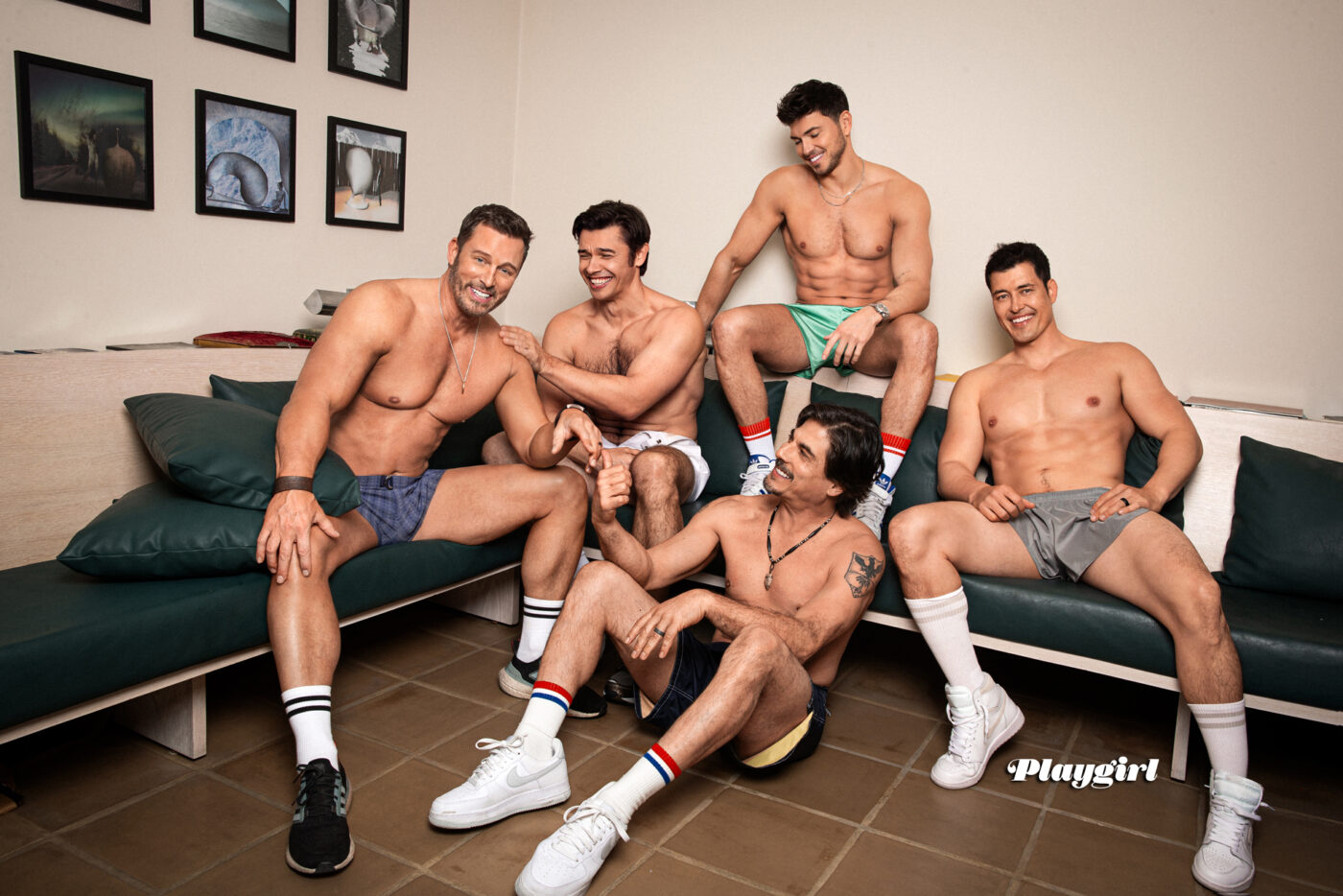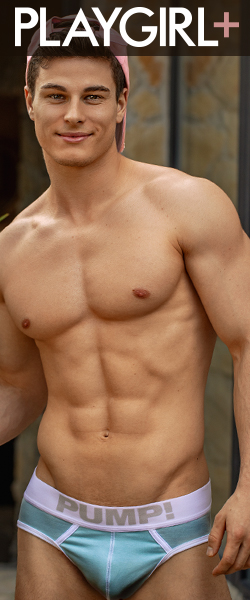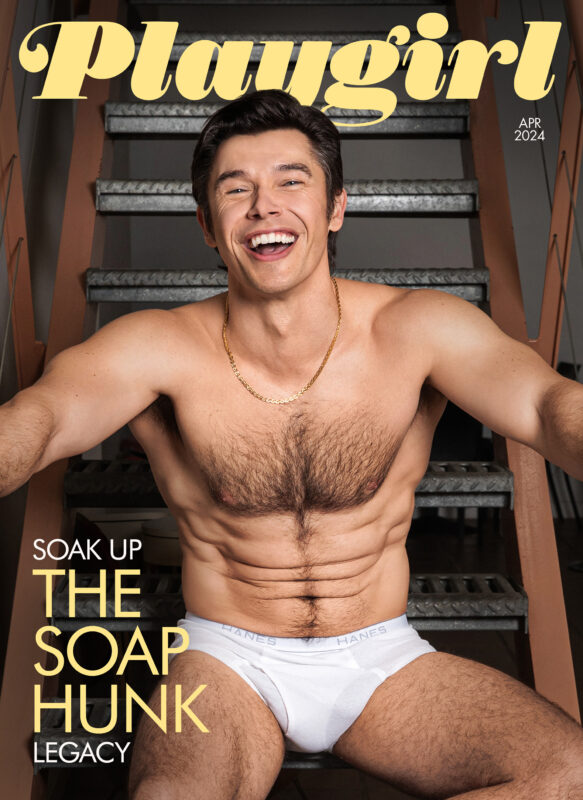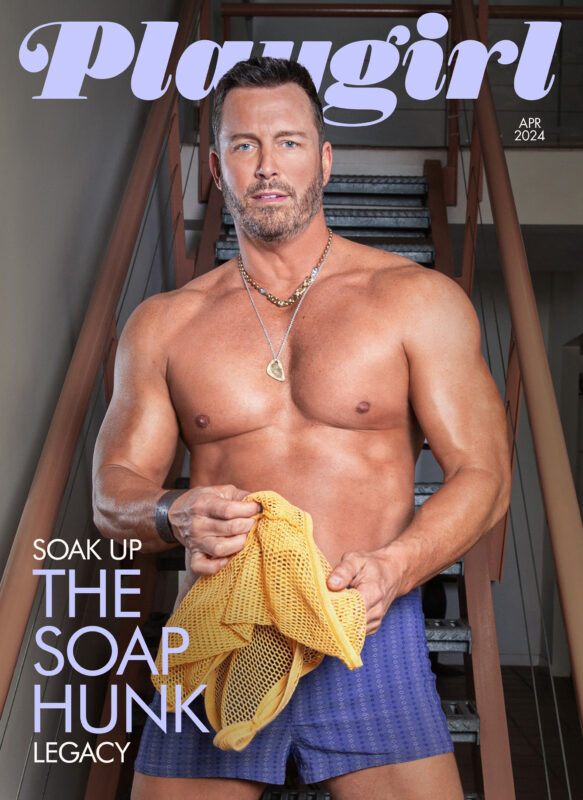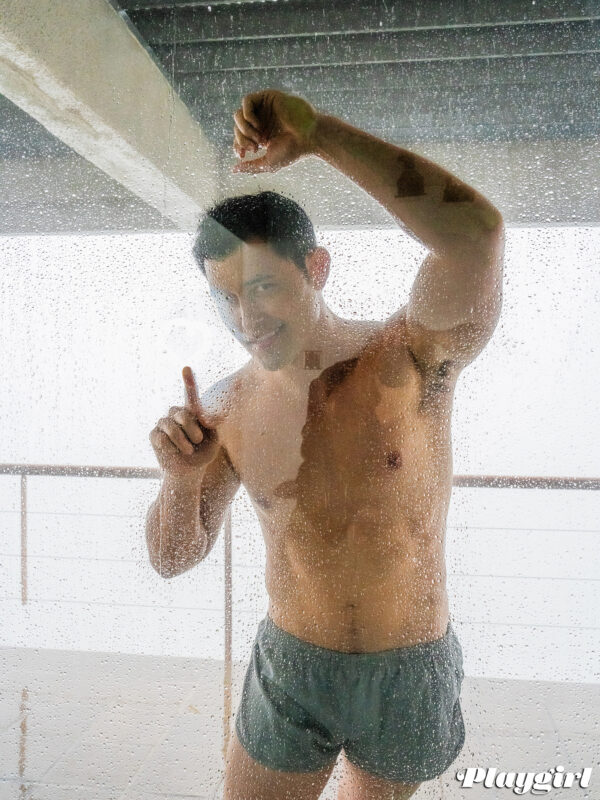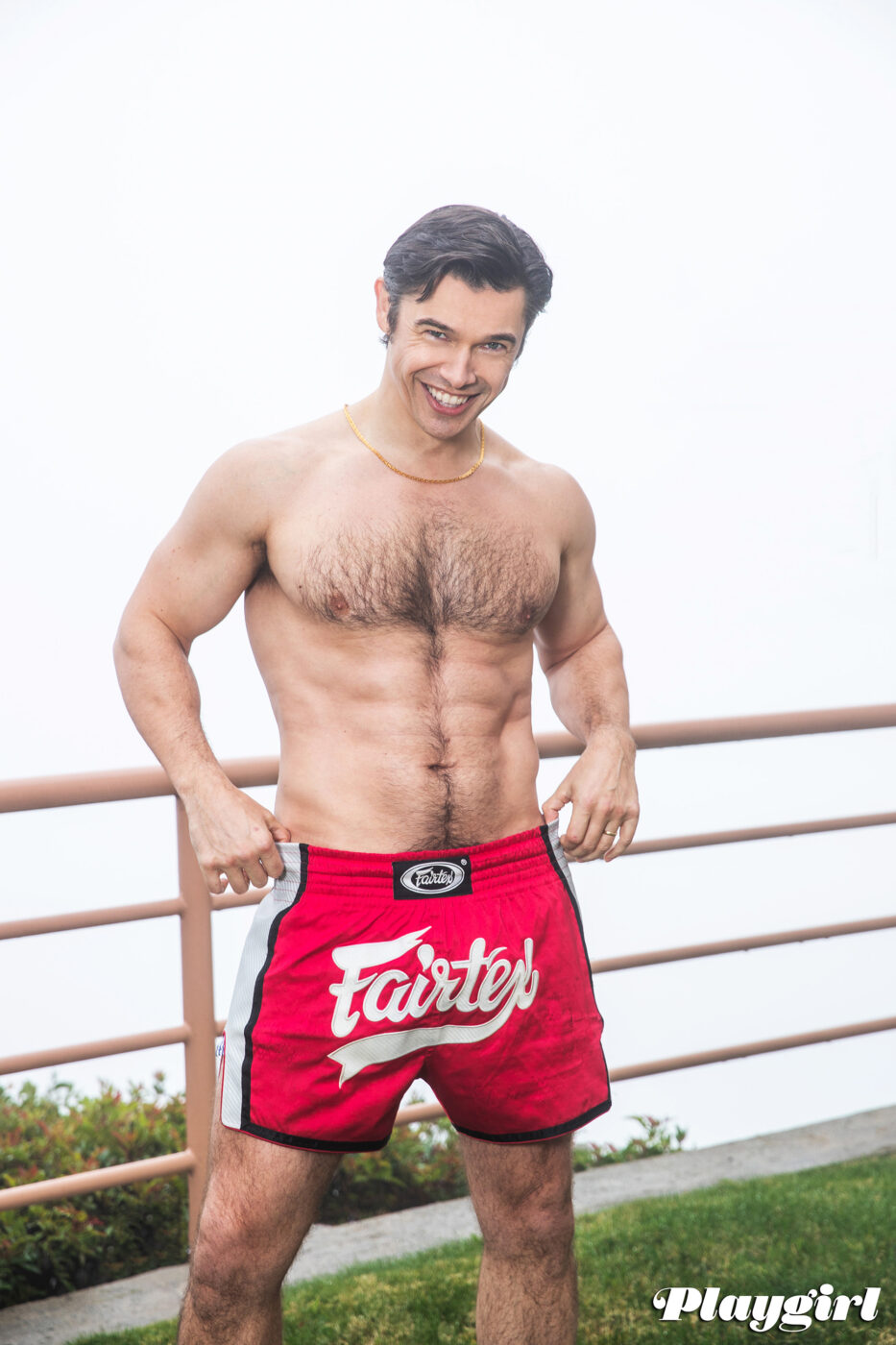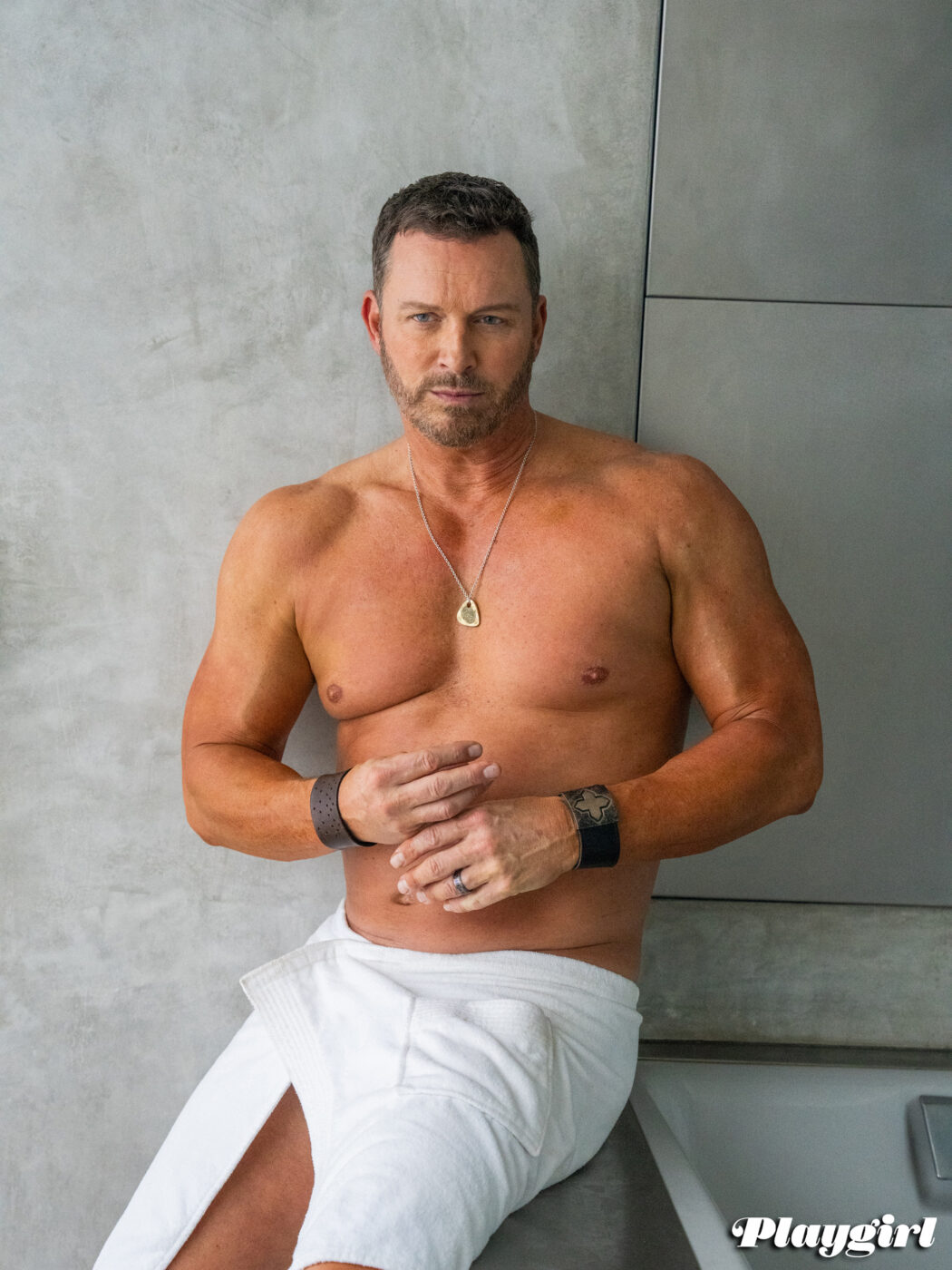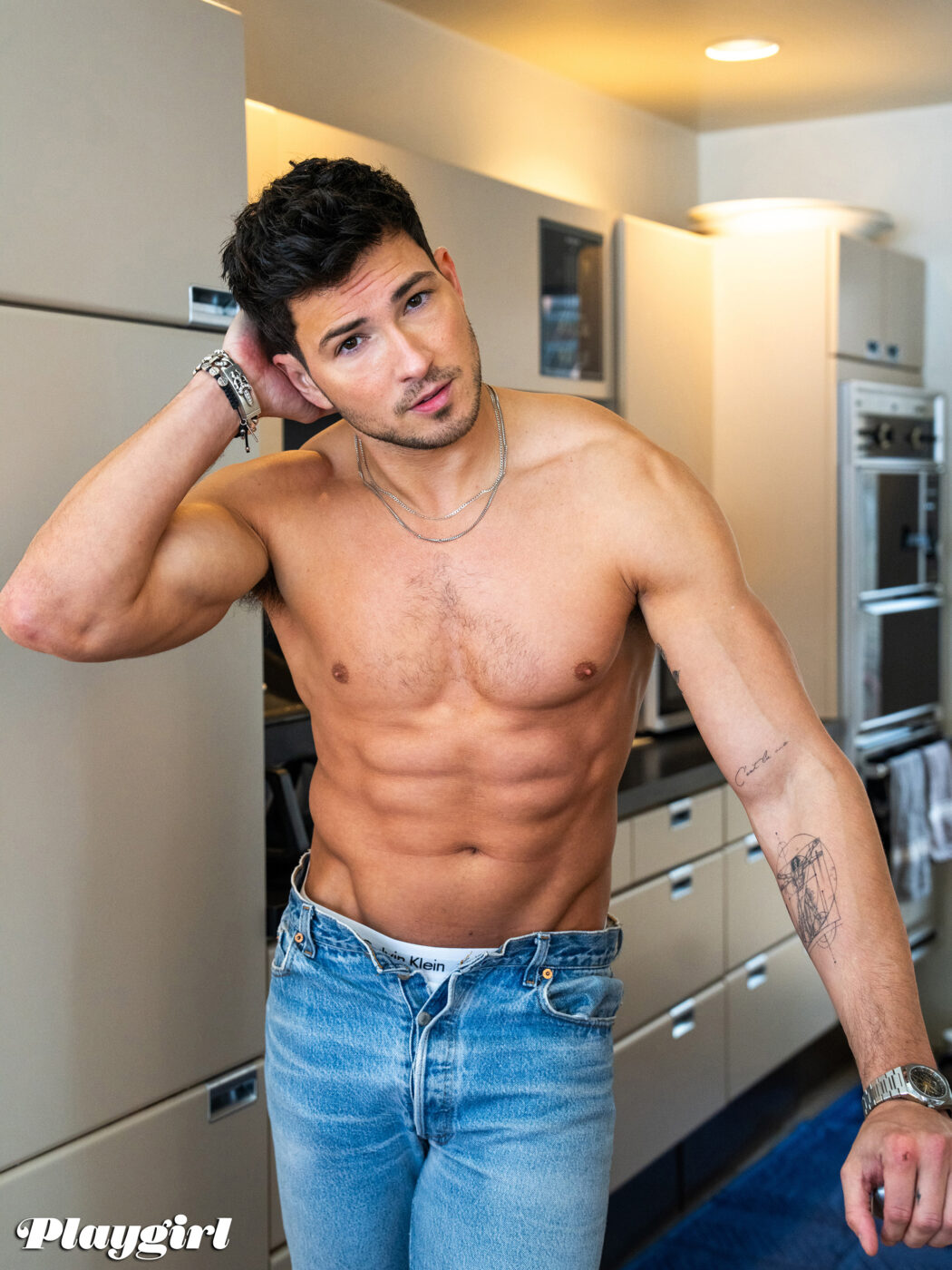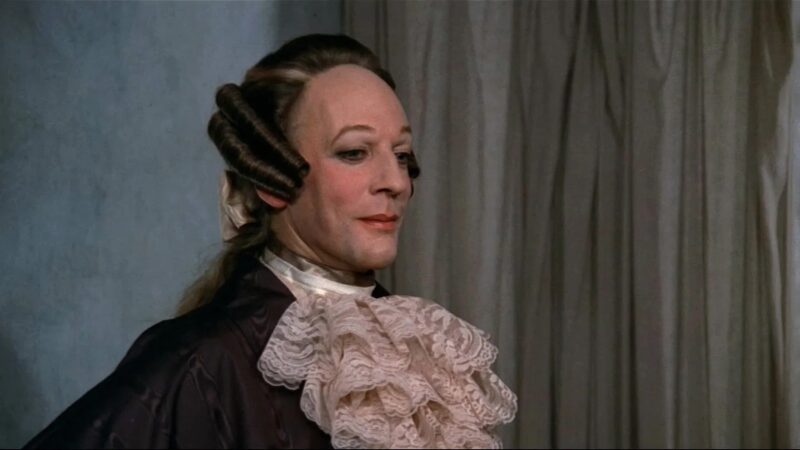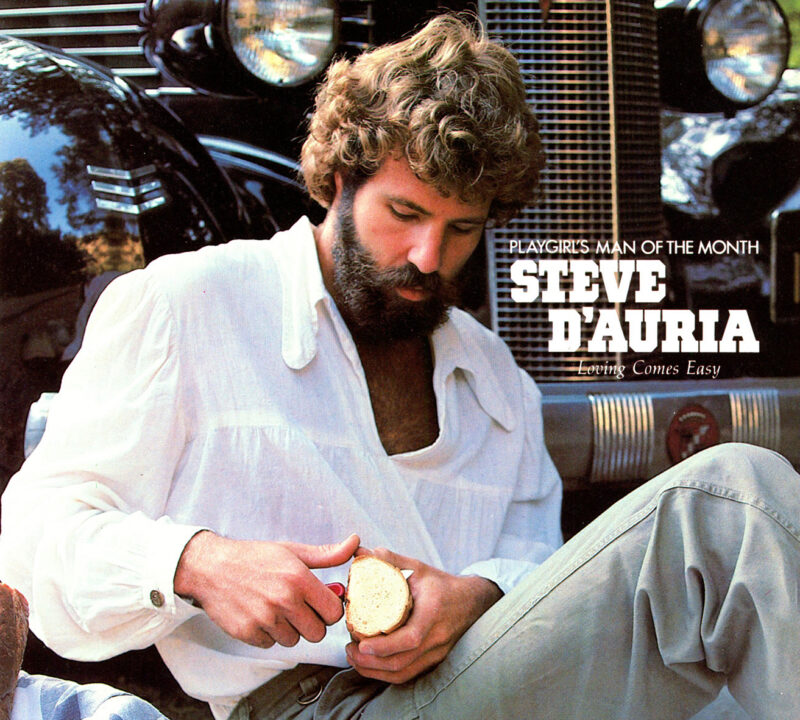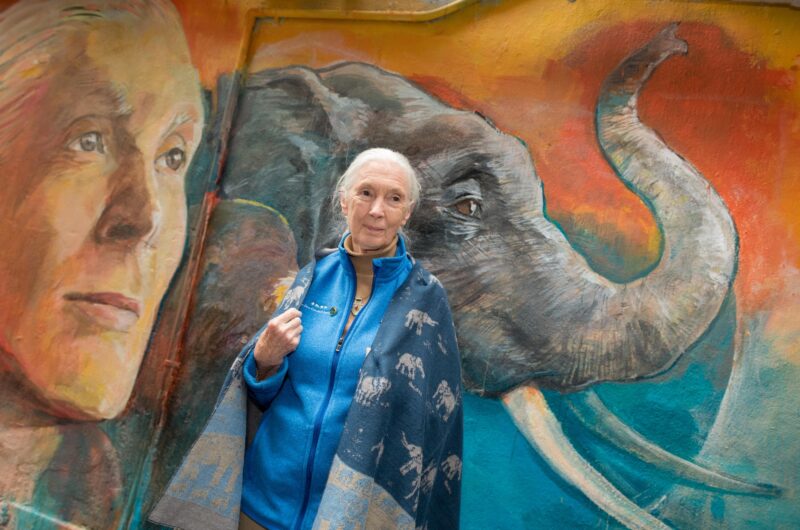For almost 60 years, Days of our Lives has graced our television sets with some of the most tantalizing actors to ever appear in our living rooms. Through all the love triangles, evil twins, demonic possessions and international spy organizations, Robert Scott Wilson, Eric Martsolf, Bryan Dattilo, Christopher Sean and Paul Telfer have helped solidify the show’s reputation as one of America’s most beloved and critically acclaimed daytime drama series, all the while carrying on the legacy of both Salem and the “soap hunk,” with ample amounts of soul and very few t-shirts.
However, the men from Days of our Lives aren’t just eye candy; they’re incredibly talented actors who’ve brought some of pop culture’s most iconic and ostentatiously entertaining storylines to life. Over the years, each of them has made us feel so intensely, constantly making us giggle, weep, or gasp for air — sometimes all in one episode. But it’s only possible, because these guys aren’t just the Paul, Lucas, Brady, Xander, and Ben (or Alex) we’ve grown to love as on-screen characters, but some of the most thoughtful, spontaneous, and self-deprecatingly funny people Playgirl’s ever had the privilege to work with. So set aside any preconceived notions you have about a sexy daytime soap star, because these five are all the proof you need that it’s possible to have brains, brawn, and everything in between.
How would you describe the “soap hunk” archetype?
Christopher Sean: When I think soap hunk I think sexy. Sexy body, sexy smile. Soap hunks are for the thirsty fans.
Bryan Dattilo: Soap hunk should be a compliment to a daytime star, although there is a stigma too. Sometimes, it means [you’re] only good for shirts off-only scenes and not too bright.
Robert Scott Wilson: I’d say the male characters on a show would [also] typically be charismatic or charming. Bad boys to business men, lawyers to doctors, often played by decent-looking guys with some good acting chops, and maybe a few abs sprinkled in there.
Paul Telfer: For me, it is a romance novel cover come to life. But on the other [hand, there’s also this] accessibility. The daytime “hunk” is in people’s living rooms almost every day, and there is a sense of proximity that a movie star, for example, doesn’t have. Makes it very special; fantasy that is also domesticated.
BD: They want tall, dark, and handsome. So for me, one out of three isn’t bad… I have dark hair.
What’s it been like to spend the past several years (or decades) on daytime TV?
RSW: An absolute blessing. I recently hit my 10-year mark at Days and had about a year
under my belt at All My Children beforehand. This genre has been very good to me.
PT: I’m closing in on my first decade, but I thought it would be a one-year [role]: I’d make enough for a down payment on a house and be out. But to build and reveal a character to a consistent audience over years — and then decades — I now understand how people wouldn’t want to leave it if they didn’t have to.
CS: [Days of our Lives is] an amazing show with amazing fans that take you into their homes and make you a part of their lives. Being loved, and even hated at times, is all part of the fun.
PT: I’d been warned about the loyalty of the daytime fans. They build relationships with both the character and actor, and they are totally invested in the couplings of characters. They live beyond the show itself or the people who play them. So being a part of something so important in people’s lives, you can’t help but let it affect you after a while. It’s this feeling of being a part of an institution bigger than the show itself. It’s not just a TV show.
What’s it like to be a part of this almost 60-year-long legacy?
BD: I was a fan of the show first. My grandmother got me hooked in the ‘80s. So for me, when I got the job, it was the best thing ever. Not only for me but for my grandmother as well.
Eric Martsolf: It’s a responsibility, quite frankly. Generations of fans have supported and loved soaps forever. I take great pride in being a small part of its legacy.
CS: You only realize its greatness when you finally step away from the work and see the impact it’s made on the fans. They are your barometer of success.
RSW: [I feel] grateful and honored. This show has done something almost none other has ever done, and to have a small piece of that over the last 10 years has been a blessing.
Has the soap opera genre changed since you began? What exactly have you noticed?
BD: The soap opera genre has changed so much since I started in 1993.
EM: [They’ve evolved] with the times. They have always been a reflection of the society that views them, and our program in particular has broken boundaries all over the map.
PT: It has gotten a lot more progressive than it was. When I got here, I was surprised about the diversity of stories we told, the breadth of opportunities to show different parts of yourself that I wasn’t expecting.
RSW: You never know what wild storyline could come down the pipe nowadays, and with us going to a streaming platform and being able to push the envelope a bit more, I’m here for it all.
CS: But the great thing about soaps is that they keep that Hollywood glamour so, in that sense, they will never change.
How do you feel about being considered a “hunky soap opera star”? Do you embrace the title?
EM: I’ve always wondered where the “hunk” phrase came; a hunk of what exactly? What I embrace is the opportunity to give folks some well needed escapism from their lives when needed.
CS: I’m honored to embrace it. I just wish to see more half-Japanese actors bestowed with the title in the industry as well.
PT: The buck-toothed, lisping, overweight, perennial new kid at school with a flat top and Scottish accent in England would be very amused to know he grew up to be this “sex object”! Seriously, I very much embrace it.
BD: Hunky soap opera star!! Me? No, I’m just an actor who reacts for a living. 5 feet and 73\4 inches, stocky, and not Tom Cruise. So, I don’t fit that title. [Editor’s Note: Tom Cruise is 5’ 7”, so you have him there, Bryan!]
How do you view being in soap operas as part of your career trajectory?
BD: Being on a soap opera is my career trajectory, it’s all I ever wanted to be. For me it’s not a stepping stone; it’s a career.
PT: We are actors in a soap, and we treat the job the same. The craft is slightly different but very much a part of the career I’d hoped to have had. Honestly, I only wish I had done it sooner!
EM: I feel acting in a soap opera isn’t part of a path or “trajectory”, it’s the goal itself.
With the flexibility and stability a soap gig comes with, I’ve been able to attend most family dinners and kids’ sporting events. Filming movies overseas doesn’t provide that luxury.
RSW: It wasn’t what I set out to do, but I was given an amazing opportunity and an incredible platform for me to work on my craft and work with amazing people — in one of the toughest genres to work in. I have all the respect in the world for daytime actors and the workload that comes with it. It’s become my home and my family and I wouldn’t change a thing. Just grateful every day.
PT: The vast majority of the jobs I’ve done… I’ve had to take my shirt off! Regardless of genre, [or whether I’m doing] movies, stage or TV. I finally found my true calling when I eventually bit the bullet and did daytime TV. Now, I get to have my shirt off in all different scenarios, as opposed to just when fighting, murdering someone, or riding a horse into battle. I can be casually having a conversation with my mother-in-law or doing business… with my shirt off.
Speaking of which, it’s always fun to be eye candy, but are there downsides to being thought of this way?
BD: I hate the phrase eye-candy. It’s why I stopped working out years ago. Now I just stay in shape for myself and my health. Not to be eye-candy.
EM: One can’t control what the public thinks or how they define you. The good daytime actors have just as much depth on the inside as displayed on the outside. Staying power in the soap world requires understanding of character and an incredible work ethic. It’s not for everyone.
RSW: I mean abs are cool, but being a good actor was always cooler to me… I’m still just a kid from Massachusetts with work ethic and passion. I just happen to do my sit-ups too.
PT: I never assume that, just because lots of people think I’m attractive, everyone will find me attractive. You get a lot of adulation and praise from fans, but the ones that don’t like you, they also let you know. You can get your bubble popped very quickly. Definitely keeps you grounded.
CS: People feel they can do or say what they want to you because you are their fantasy person.
RSW: With that said, I love the passion of our fans, but even I have a boundary. Suppose it comes with the territory, but grateful for it all.
Soap operas have always been defined by their very unique and over-the-top narratives, where fan favorites can return from the dead, replace other actors, or come back to play completely different characters. What’s that experience like? And does it ever leave you feeling a little interchangeable or vulnerable?
RSW: Over-the-top for sure. After playing Ben Weston for eight years — from serial killer to redeemed romantic lead, eight near-deaths, and everything in between — and having a very passionate fan base, I got the alarming call with the change that was to come. It ended up being one of the best changes I could have asked for — but didn’t ask for.
PT: During the more mercenary years of my career, I’d [go from] one job to the next, always with a beginning, middle, and end. Movies for example. That has its own excitement, and its own rewards. You are trading for some stability with soaps. But you are never really stable, and some of these narrative tricks and tropes are ways to move people in and out of the show for reasons that sometimes have nothing to do with the story and are beyond your control.
RSW: Having the opportunity to play a completely different role on my own home turf was one of the best compliments I could’ve received. Now I’m part of one of the most bad-ass family names in daytime for the last two years, playing Mr. Alex Kiriakis, a business bad boy with a mean track record and a kind heart. I always loved playing the role of someone who does bad things but has a good heart. The anti-hero.
BD: I was in a coma once and came back. I hate leaving all the time and coming back. So yes, it leaves me feeling vulnerable. But otherwise nothing’s been too far-fetched… except once my son came back from the dead. That was weird.
CS: I’ve had to act with actors that have come back from the dead but I’ve never had the experience myself. It can cause some friction on set at times, because we are all trying to make it work, but it’s our job to suspend the disbelief.
PT: However, we still have to play out the stories as if they had very real stakes in the consequences. Luckily, I’ve never been killed, but I have had to be involved in bringing people back from the dead and experienced actors replacing others in a role.
How would you describe the cultural legacy or contribution of the “soap hunk” to television history?
EM: We have been afforded this tremendous gift in soaps; to cultivate characters on an almost daily basis. This allows audience members to become greatly connected to the characters and their tv families. We almost become part of the furniture!
RSW: Audience engagement, soap opera popularity, marketing ability, evolution of male characters and challenging stereotypes. Cultural iconography.
BD: If that’s what I am I’ll take it. Soap hunk is fun. My mom used to say I was soap opera handsome. I guess she was on to something.
PT: Especially now, in the more modern era, when you say “hunk,” it makes you think of the mid 20th century, brawny man, the Marlboro Man for example. Superficial, yes, but for soaps, because the stories spend so much time with us, you can’t help but reveal vulnerability and flaws and eccentricities that someone as simple as just a hunk wouldn’t have the opportunity to reveal. This gets back to that intimacy with the audience –– it helps reveal these in our characters. Days has had hunky gay men and men in several types of relationships, still being hunks but not the stereotypes you are used to seeing. I think there is definitely a more progressive sense of what men are now.
CS: Looks will always draw viewership but the idea that a soap hunk is “only looks” is the trap. Because “soap hunks” these days are much more than just a set of abs. They study pages and pages of dialogue and develop bullet proof bodies and are also charismatic renaissance men who have earned that title behind their smiles.
Is there anything else about being a “soap hunk” and daytime actor that you’d like talk about?
EM: At the end of the day, we’re not “soap actors,” we are actors. A specific acting job shouldn’t define the person or their overall ability. I’m proud to carry the legacy of soaps into the future and give those generations “soapy comfort food” for many years to come.
PT: The hunks on our show can be heroes or villains and often both, depending on the perspective of the audience member and their preexisting biases towards that character. But the vast majority [of our acting is also] sensitive, emotional work from big handsome men. “Hunks” who would normally be typecast for violence, in our daytime world, could be a doctor, a newspaperman, or a diamond smuggler!
Clint Eastwood or other movie stars, for example, are very often trapped by their movie persona and defined by it. Here on soaps, it is more the other way around. We get to define the character, and we have a responsibility to carry the mantle of the character — to shape it and help it evolve over time in the way a big movie star hunk like Stallone, Schwarzenegger or Eastwood [can’t]. They are locked in and defined by their capacity for violence and power, per se.
And I have always felt the stars of this show are the women, and we are much more the objects of both the female characters’ and the audience’s desires, fantasies, etc. Through supporting these women in their stories, as opposed to being more traditional protagonists, it puts us in a very unique position. Male movie stars are for the male gaze, to make men feel powerful. But we are here to make our audience — men and women — feel powerful, like the most beautiful person in the world. We lift them up, as opposed to dominate or take charge of them, we are often the “damsels in distress.”
*Quotes have been edited and condensed for clarity.
More photos and the backstage video, exclusively on PLAYGIRL+
- Paul Telfer.
- Robert Scott WIlson.
- Eric Martsolf.
- Robert Scott Wilson.

